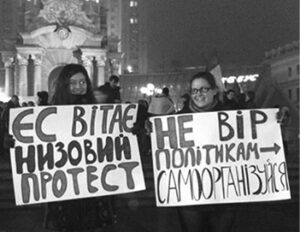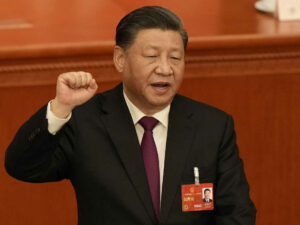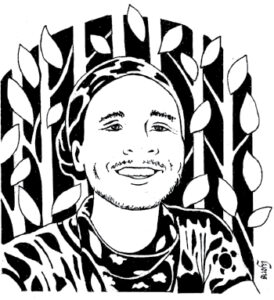
“The conditions in Cuba are tough for those dissenting,” Alina Bárbara López says. “I have refused to flee Cuba and that strengthens the pressure on me. Nevertheless, I believe it is possible to get involved.”

“The conditions in Cuba are tough for those dissenting,” Alina Bárbara López says. “I have refused to flee Cuba and that strengthens the pressure on me. Nevertheless, I believe it is possible to get involved.”

John Clarke recommends Oliver Kearns’ book “The Covert Colour Line,” on racism as the foundation of US and British intelligence agencies.

The author (right) on Kyiv’s IndependenceSquare. December 2013.
In early December 2013, I found myself on Kyiv’s Maidan Nezalezhnosti (Independence Square), holding a sign reading “Don’t Believe Politicians—Self-Organize!” as part of a protest with a small group of student activists. Weeks . . .

Given China’s drivers, it’s difficult to imagine how this trend could be halted or reversed short of the collapse or overthrow of the CCP. That’s coming but of course it’s impossible to predict when.

Alina Bárbara López Hernández
In the closing address to the tenth congress of the Committees for the Defense of the Revolution (CDR -the street level vigilance committees) that took place on September 28 of this year, the president of the Cuban . . .

As I write (and you read) these lines, two intellectuals, two friends, are persecuted by the respective governments of their countries. Alina Barbara López Hernández in Cuba, and Boris Kagarlitsky in Rusia.

A history of Stop Cop City and the struggle to defend the Atlanta Forest. A must read for anyone interested in getting the whole story.

Dan Fischer analyzes the Stop Cop City movement in Atlanta, its roots in the Black Power movements and anarchist inspirations.

The views of Left and Right differ regarding the study of history. For the Right it is largely an exercise in building identity and loyalty, an exploration of what makes one’s nation and race, and therefore one’s self, special. For . . .

The consensus from the authors reviewed here is that the anti-fascist and anti-authoritarian causes requires profound socio-economic and political changes at all levels of global society.

An excerpt from We the Elites: Why the US Constitution Serves the Few. Direct self-organization makes a constitutional system unnecessary while simultaneously dismantling the rule of property.

Sudanese activist Muzan Alneel discusses four years of the Sudanese Revolution and the crucial role played by neighborhood Resistance Committees.